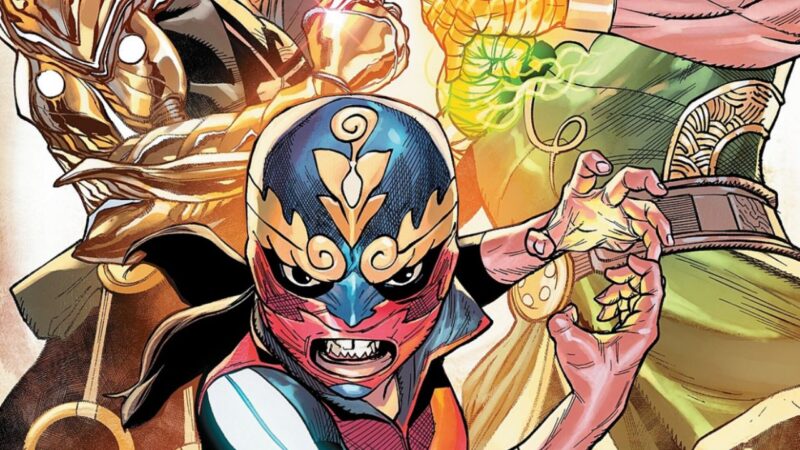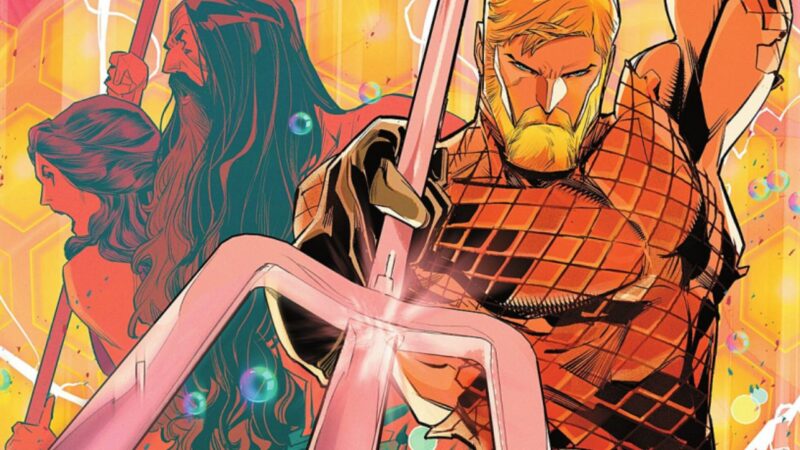Greek mythology, with its intricate tales of gods, heroes, and monsters, offers timeless narratives that explore the depths of human nature and the mysteries of the divine. Here are “15 of the Most Famous Stories from Greek Mythology”, each with its own unique blend of adventure, tragedy, and moral lesson.
15 of the Most Famous Stories from Greek Mythology
The Creation Myth
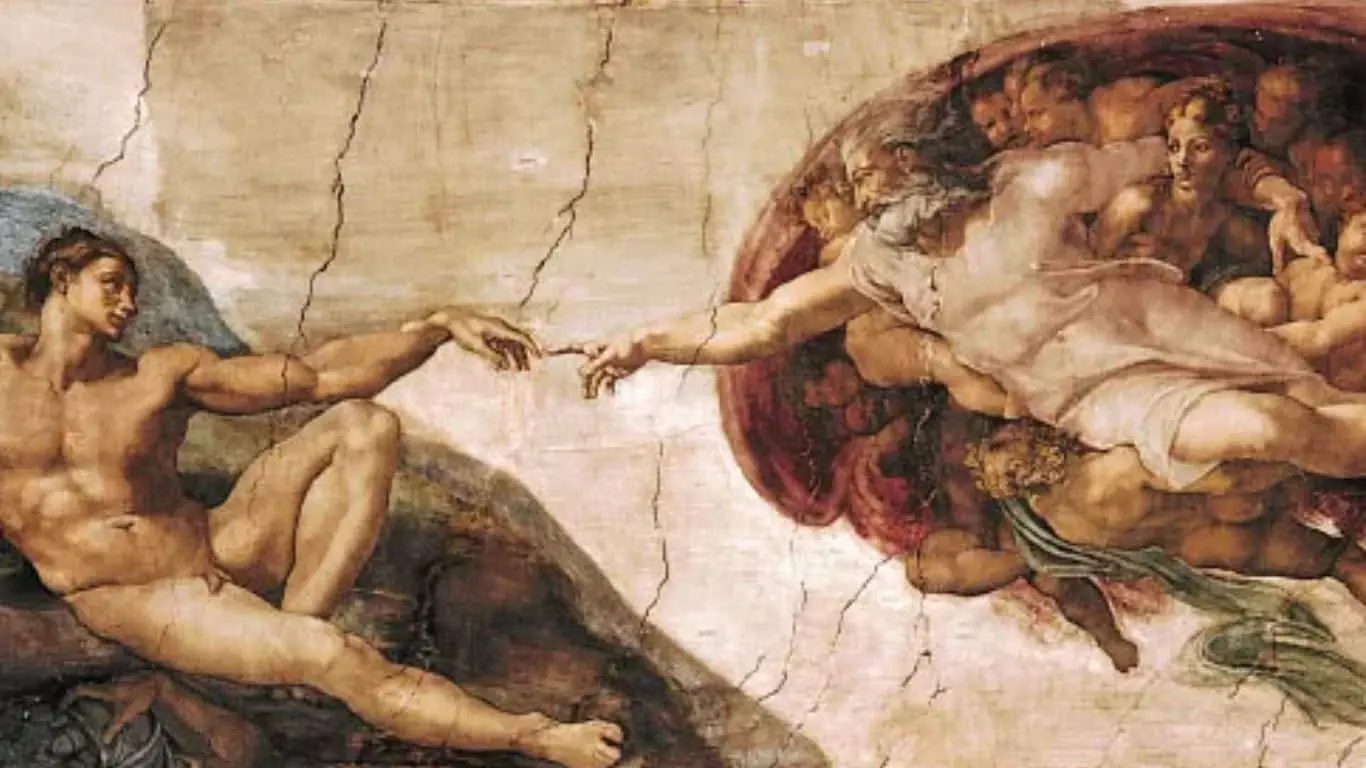
The Greek creation myth starts with Chaos, a void from which everything else springs. Gaia (Earth) emerged, birthing Uranus (the Sky), the Mountains, and Pontus (the Sea) purely from herself. Gaia and Uranus’s union produced the Titans, the Cyclopes, and the Hecatoncheires (hundred-handed giants), setting the cosmic stage for all subsequent mythology. This narrative not only explains the origins of the universe and the gods but also reflects the Greeks’ understanding of their world’s complexity and beauty.
The Reign of the Olympians
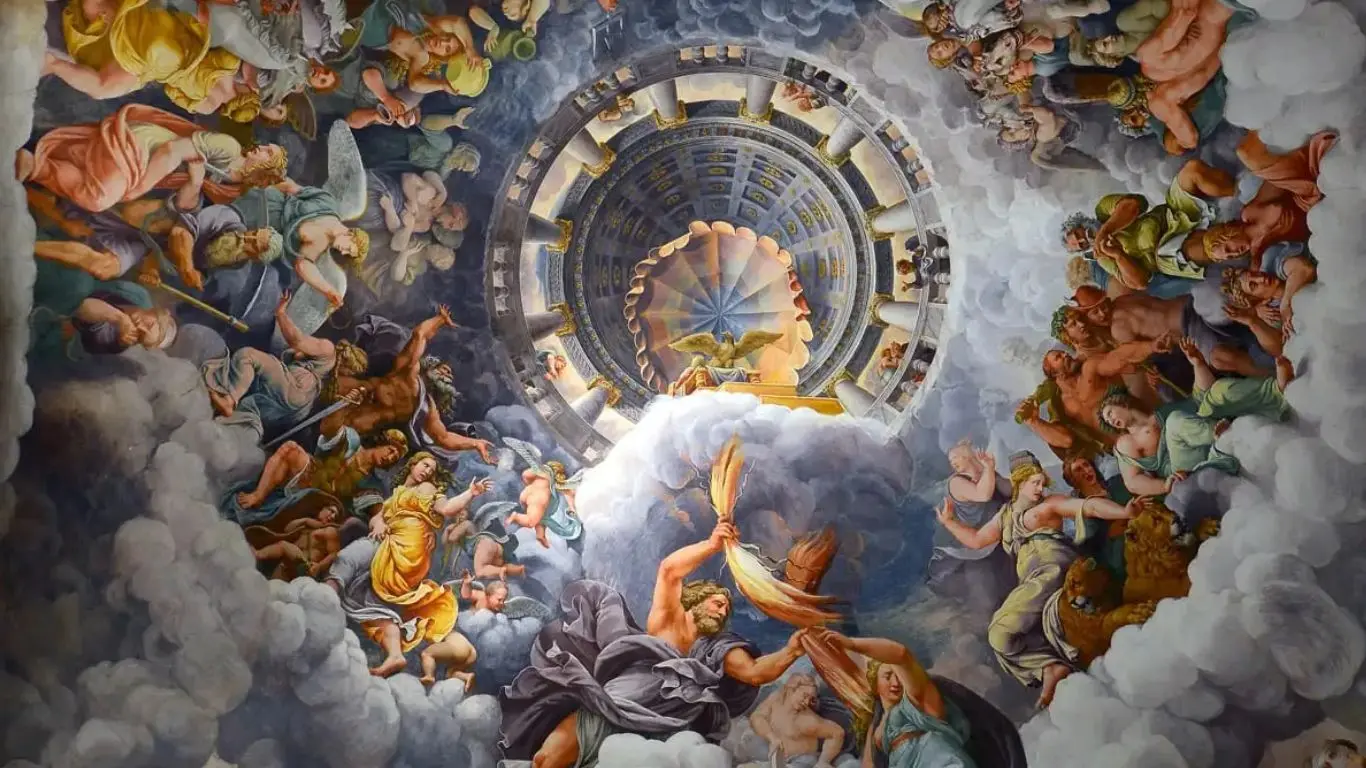
After a titanic struggle known as the Titanomachy, the Olympians, led by Zeus, emerged victorious over the older Titans. The Olympian gods and goddesses, including Hera, Poseidon, Demeter, Athena, Apollo, Artemis, Ares, and Aphrodite, took their place on Mount Olympus, ruling over the earth and humanity. Each deity wielded power over specific aspects of life and nature, embodying the Greeks’ attempts to make sense of natural phenomena and human emotions.
Prometheus and Fire
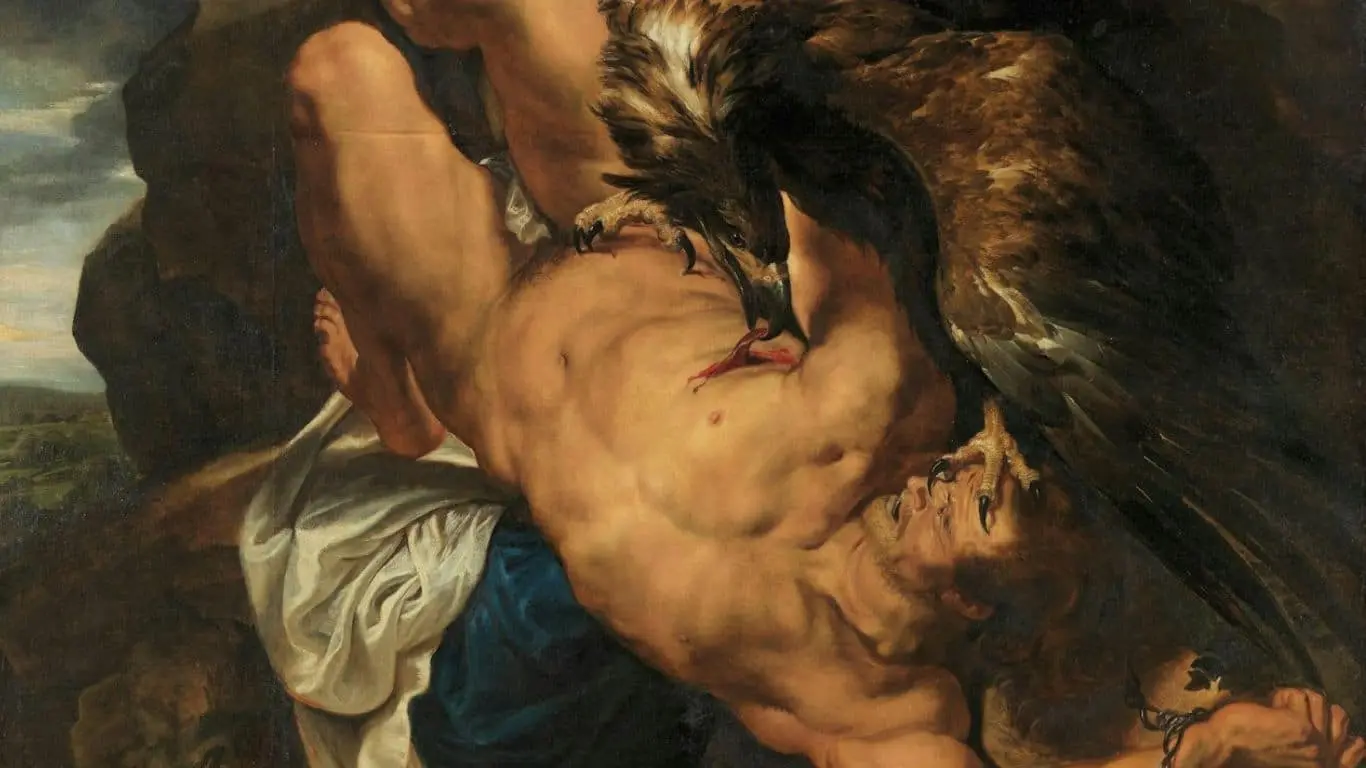
Prometheus, one of the Titans, is best known for his love of mankind, for which he defied Zeus by stealing fire from Olympus and giving it to humans. This act of defiance is pivotal because fire symbolizes technology and knowledge, the keys to civilization’s progress. As punishment, Zeus bound Prometheus to a rock where an eagle would eat his liver daily, only for it to regrow and be eaten again. This story highlights themes of innovation, sacrifice, and the complex relationship between gods and humans.
Pandora’s Box
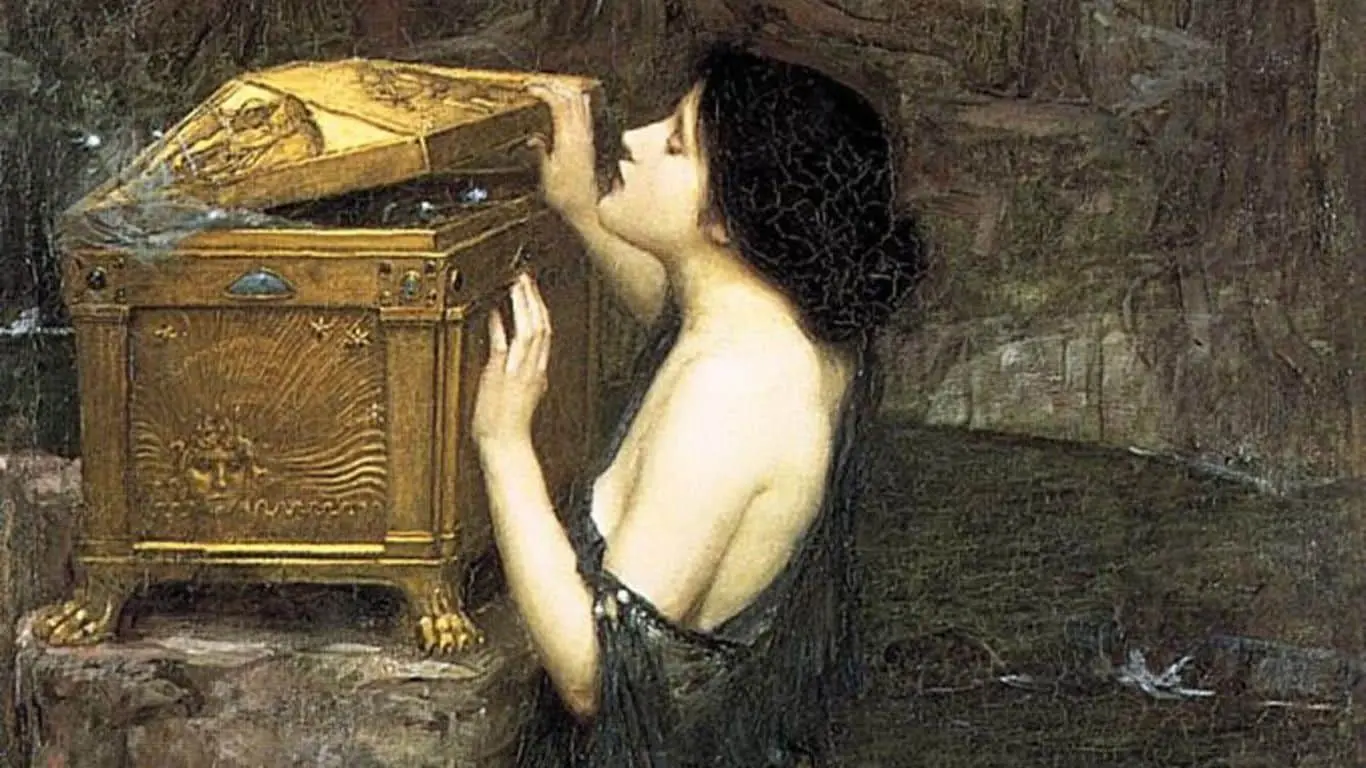
Zeus created Pandora, the first woman, as part of the punishment for humanity’s receipt of stolen fire. She was given a box (or jar) and instructed never to open it. Overcome by curiosity, Pandora opened the box, releasing all the evils into the world—disease, sorrow, malice—leaving only hope inside once she closed it again. This myth explores themes of curiosity, disobedience, and the origins of human misfortune, while also suggesting hope remains amidst adversity.
The Labors of Hercules
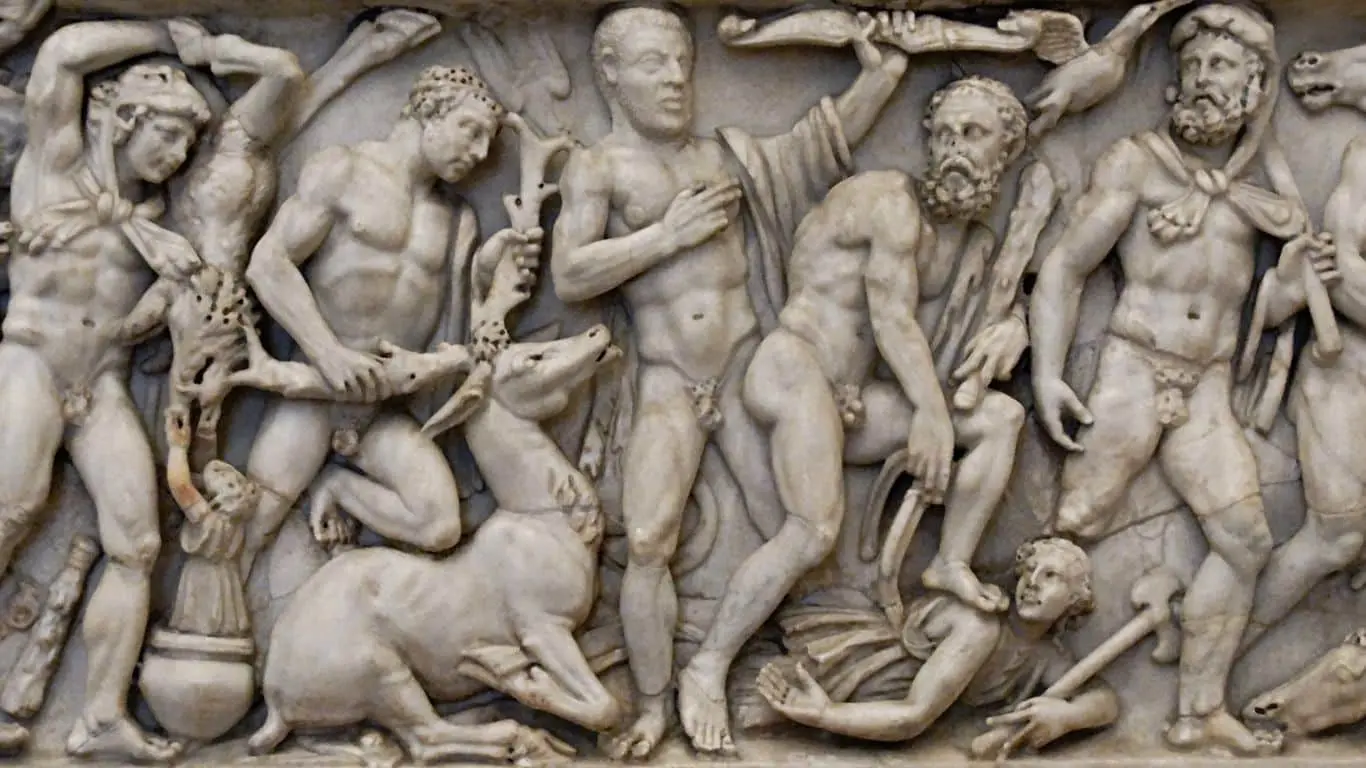
Hercules, the son of Zeus and the mortal Alcmene, was known for his incredible strength and for completing twelve labors as penance for killing his family in a god-induced rage. These labors included defeating the Nemean Lion, capturing the Erymanthian Boar, and retrieving the golden apples of the Hesperides. Through these impossible tasks, Hercules earned his place among the gods, symbolizing the virtues of strength, courage, and resilience.
The Trojan War
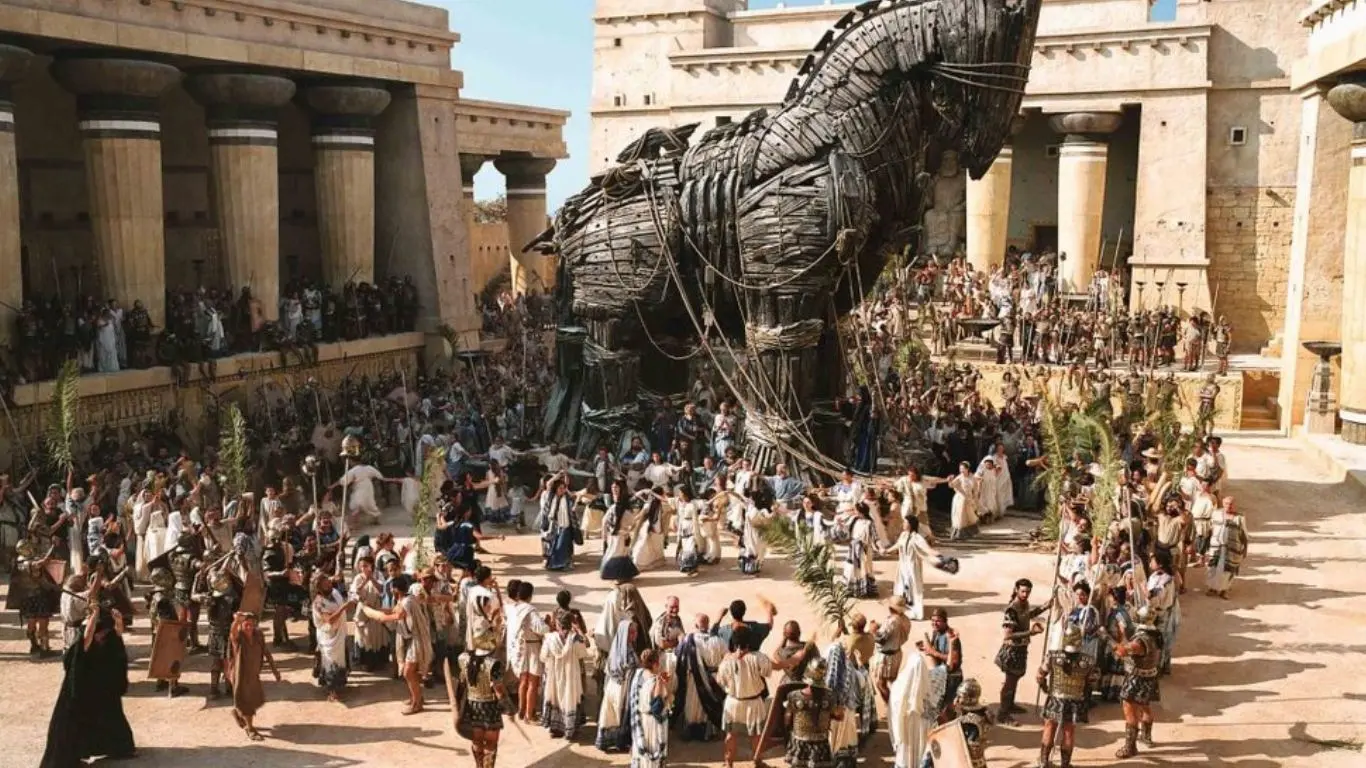
The Trojan War, sparked by the Trojan prince Paris’s abduction of Helen, wife of the Spartan king Menelaus, is a central story in Greek mythology. This decade-long war, detailed in Homer’s “Iliad,” features a cast of gods and heroes, including Achilles, Hector, and Odysseus, and explores themes of honor, love, wrath, and the tragic hubris of both gods and men.
Jason and the Argonauts
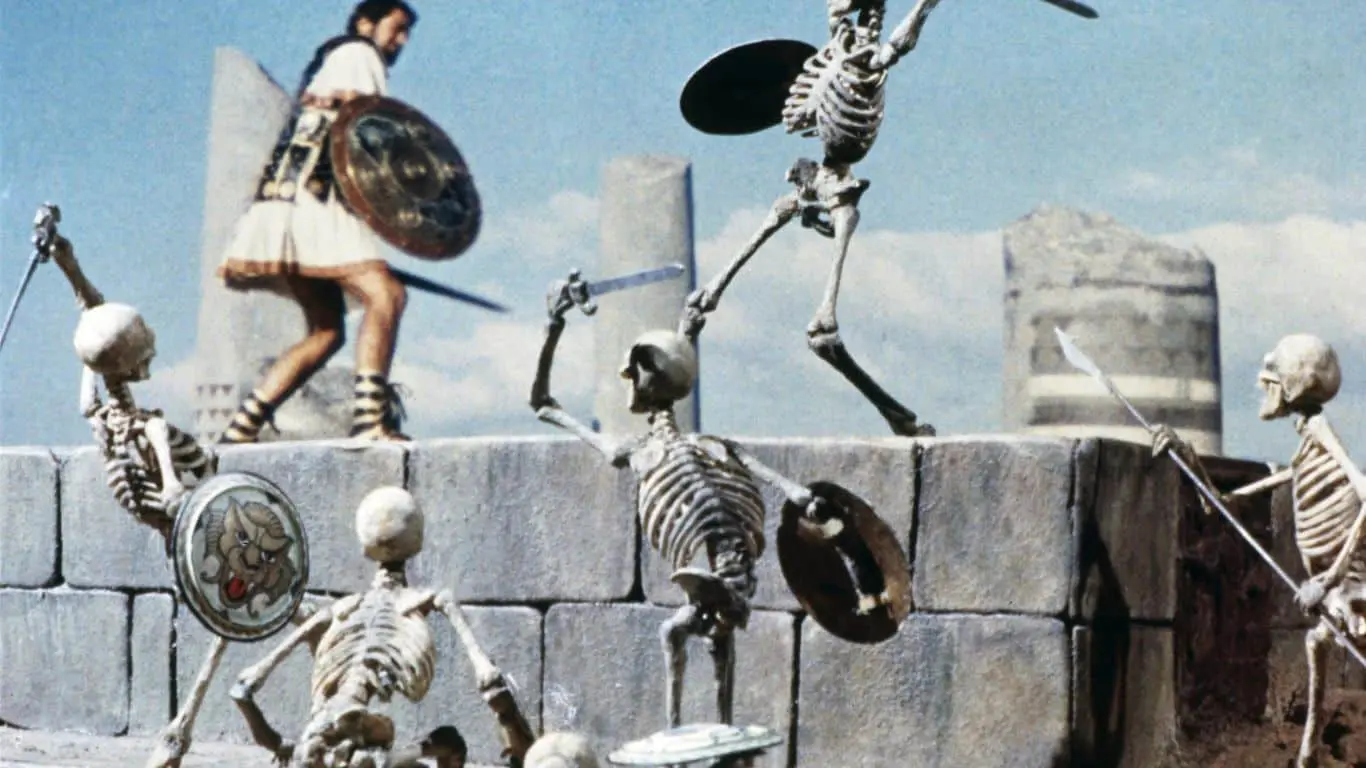
The quest for the Golden Fleece led by Jason is among the most famous adventures in Greek mythology. Accompanied by heroes such as Hercules and Orpheus, Jason’s journey aboard the Argo involved formidable challenges, including sowing dragon’s teeth and defeating the never-sleeping dragon that guarded the fleece. This story celebrates heroism, teamwork, and the pursuit of glory despite overwhelming odds.
Persephone and the Seasons
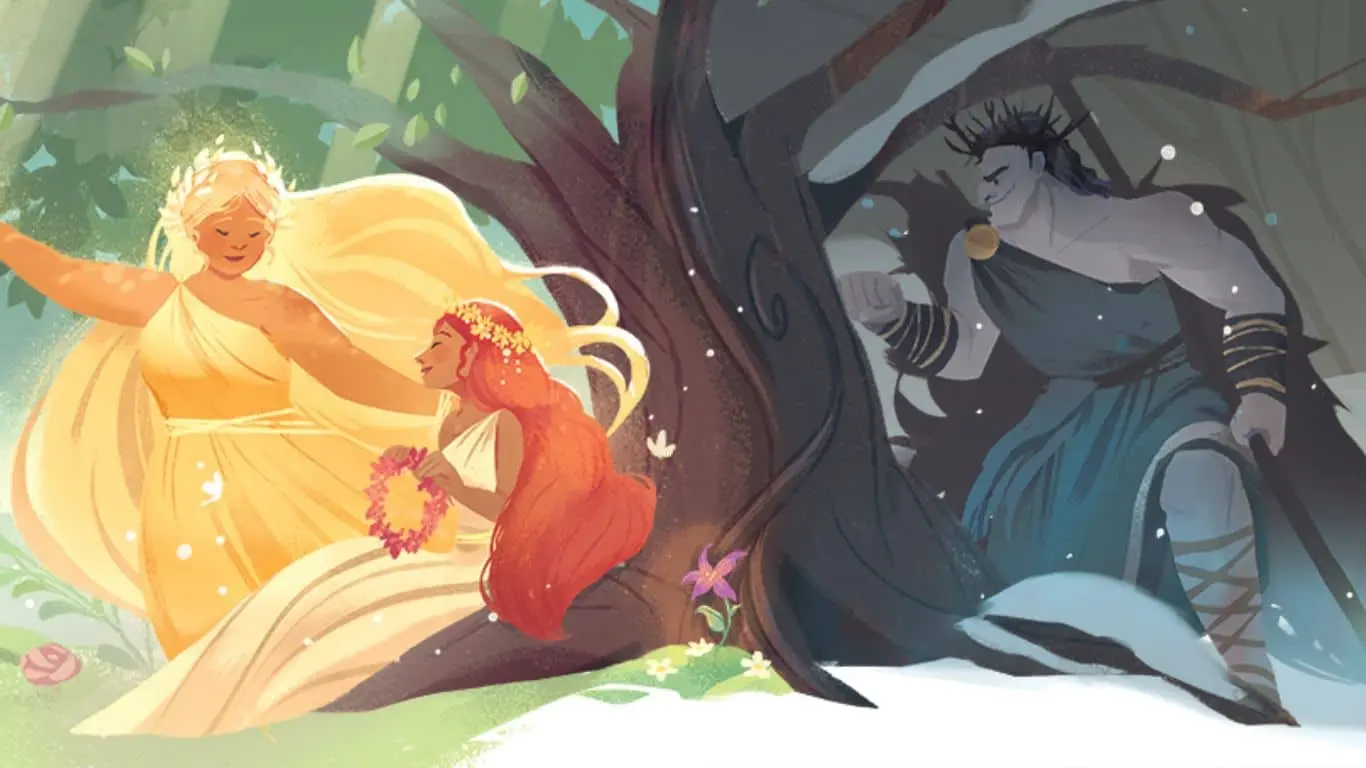
The myth of Persephone’s abduction by Hades, the god of the underworld, and her mother Demeter’s subsequent grief explains the cycle of the seasons. Demeter’s despair caused the earth to become barren, leading to the first winter. Her joy upon Persephone’s return brings about spring and summer, symbolizing life’s cyclical nature and the eternal hope of renewal.
The Tale of Medusa
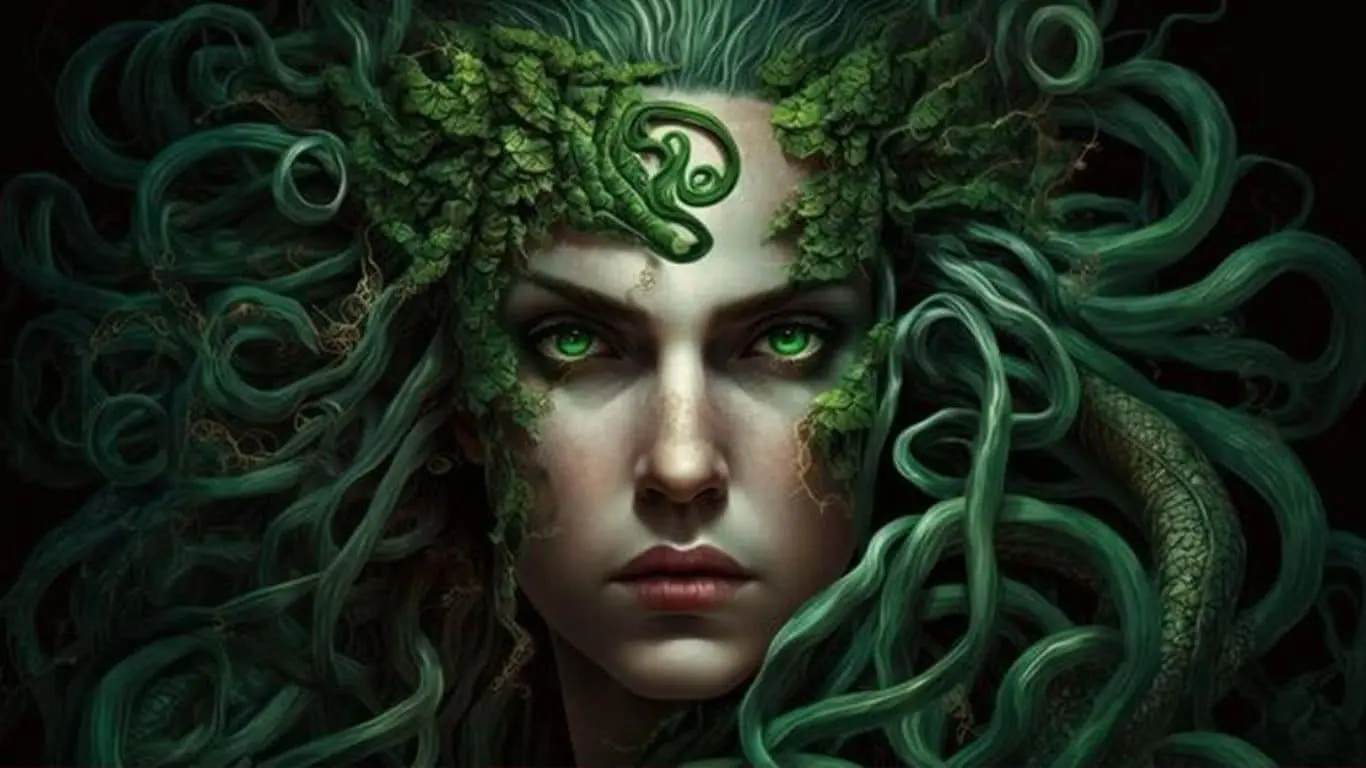
Medusa’s tale is a tragic story of transformation from a beautiful maiden to a Gorgon with snakes for hair and a gaze that turned onlookers to stone, as punishment by Athena for a violation by Poseidon. Perseus, the hero, eventually beheaded her using a mirrored shield to avoid her petrifying gaze. Medusa’s story intertwines themes of beauty, terror, and divine retribution.
Theseus and the Minotaur

Theseus, the prince of Athens, volunteered to end the tribute of seven men and seven women sent to the Minotaur, a monster dwelling in the labyrinth of Crete. With the help of Ariadne’s thread, Theseus navigated the labyrinth, killed the Minotaur, and led his companions out. This myth symbolizes the triumph of ingenuity and bravery over confusion and fear.
The Myth of Narcissus
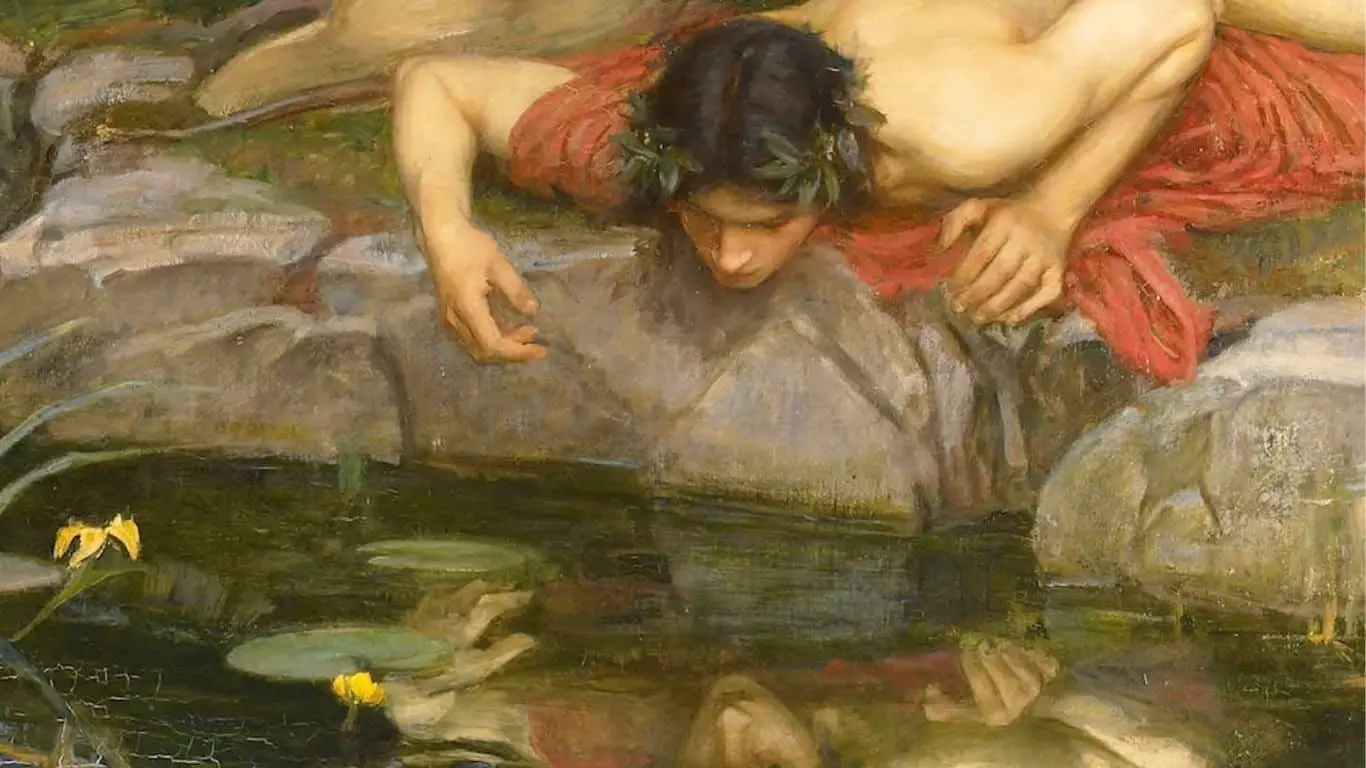
Narcissus, famed for his unparalleled beauty, fell in love with his own reflection in a pool of water, unable to leave the captivating image until he died. The story of Narcissus addresses themes of vanity, self-obsession, and the dangers of unattainable desires, serving as a cautionary tale about the perils of excessive pride and self-admiration.
The Tale of Arachne

Arachne, a talented mortal weaver, boasted that her skills surpassed those of Athena, goddess of wisdom and crafts. In a contest of skills, Arachne’s tapestry offended the gods, leading Athena to transform her into a spider, doomed to weave for eternity. This story warns of the dangers of hubris and the need to respect the divine.
The Curse of the House of Atreus

The House of Atreus is plagued by a cycle of vengeance and murder, beginning with Tantalus’s sacrilegious acts and continuing through his descendants, including Atreus, Thyestes, and Agamemnon. This dark saga explores themes of familial loyalty, curse, and the inescapable nature of destiny, reflecting on the tragic flaws inherent in humanity.
The Journey of Orpheus and Eurydice

Orpheus, the greatest musician of the ancient world, ventured into the underworld to retrieve his beloved wife Eurydice. His music softened the hearts of Hades and Persephone, who allowed Eurydice to return with him to the living world on the condition that he not look back until reaching the surface. Orpheus’s failure to comply resulted in Eurydice’s permanent loss, highlighting themes of love, trust, and the pain of loss.
Achilles’ Heel

Achilles, the greatest Greek warrior in the Trojan War, was invulnerable everywhere except for his heel, where his mother Thetis held him when dipping him in the River Styx. His death from an arrow wound to the heel is a poignant reminder of the vulnerability and mortality of even the greatest heroes, underscoring the themes of fate, heroism, and the fragility of life.
Also Read: 10 Monsters of Greek Mythology





